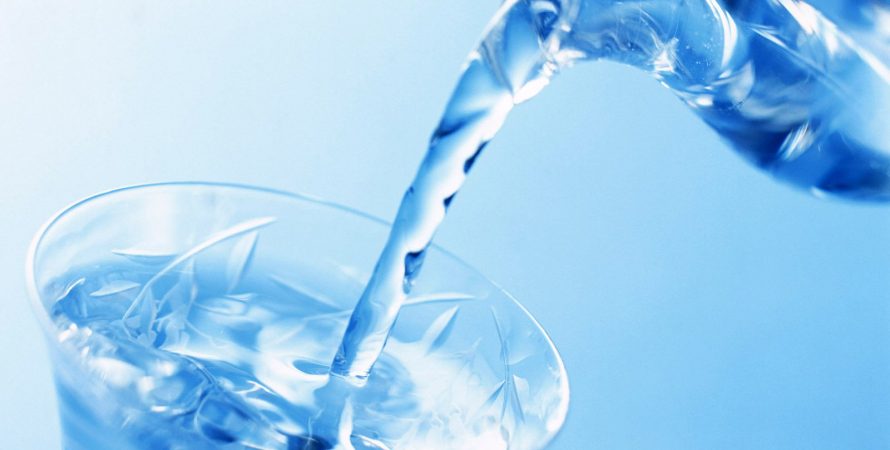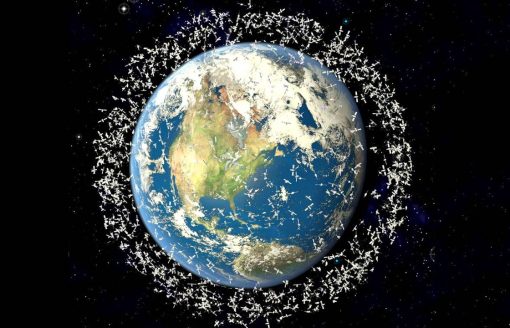The two biggest bottled water companies in the world — Danone and Nestlé Waters — are teaming up to change plastic packaging in the food and beverage industry. To accomplish the feat, they’re bringing in a California startup called Origin Materials that’s been working on bio-based technology — that is, using sustainable and renewable resources. Together, the three groups are known as the NaturALL Bottle Alliance, and their goal is to develop and launch a 100 percent bio-based bottle that’s commercially available to the entire food and beverage industry.
Formerly known as Micromidas, Origin Materials has been working on this process for some time, and has already achieved success creating 80 percent bio-based PET at the pilot level. “Current technology on the market makes it possible to have 30 percent bio-PET,” said John Bissell, chief executive officer of Origin Materials. “Our breakthrough technology aims to reach 100 percent bio-based bottles at commercial scale.”
The Current Industry
There’s no denying the convenience of disposable packaging for transporting foods and beverages, and there’s no sign that food and beverage manufacturers will be able to stop relying on packaging anytime soon. PET plastic, or polyethylene terephthalate, is one of the most common materials for things like plastic bottles (it’s denoted by a #1 recycling symbol), but because it’s derived from petroleum products, it’s also one of the least sustainable. It doesn’t help that, according to the Container Recycling Institute, we end up throwing away more than 60 million plastic bottles every year — even though PET is a recyclable material.
The Vision
Origin Materials is planning to produce PET plastic — which is the industry standard for lightweight, flexible yet strong packaging material — from completely organic sources. Rather than relying on petroleum, of which there is a finite amount on the planet, the company is attempting to synthesize new PET plastic from biomass, such as sawdust, wood chips and cardboard. In the future, they may also incorporate rice hulls, straw and agricultural residue. Using renewable feedstock does not divert resources or land from food production.
Formation of the NaturALL Bottle Alliance will speed up the process, as Danone and Nestlé Waters are providing expertise and teams, as well as financial support, to the project. “Our goal is to establish a circular economy for packaging by sourcing sustainable materials and creating a second life for all plastics,” said Frederic Jouin, head of R&D for plastic materials at Danone. “We believe it’s possible to replace traditional fossil materials with bio-based packaging materials. By teaming up and bringing together our complementary expertise and resources, the Alliance can move faster in developing 100 percent renewable and recyclable PET plastic at commercial scale.”
Later this year, a “pioneer plant” will be constructed to produce samples of 60-plus percent bio-based PET starting in 2018. After that, the companies plan to up the stakes to at least 75 percent biomass-derived plastic bottles by 2020, and 95 percent derived by 2022. The ultimate objective will be to provide bottles 100 percent derived from biomass sources.
“It’s incredible to think that, in the near future, the industry will be able to use a renewably sourced packaging material [that] does not compete with food production and contributes to a better planet,” said Klaus Hartwig, head of R&D for Nestlé Waters. “This is an exciting journey and we are proud to be part of it.”
Rewarding Companies That Try
Danone and Nestlé Waters are hoping to forge a path for food and beverage companies, bringing their new method of plastic production to corporations all over the world, but they aren’t the first ones to pursue more environmentally friendly material production. Beverage producers like Coca-Cola and SodaStream are just two of the companies seeking new forms of biodegradable plastic that can be used to serve their customers.
We’re still a long way from fully tackling the problem of plastics and other disposable materials, but this is a step in the right direction. If we can’t fully eliminate our reliance on disposable packaging, we can at least make our packaging more environmentally responsible to produce. Major corporations hold the power here, but as consumers, we have the ability to demand more from the companies we buy from. We can do our part by rewarding the companies striving for a more sustainable future, and staying away from the ones that refuse to adapt.









In Space, Nobody Picks Up Your Trash: NASA Recycling in Space Award Winners